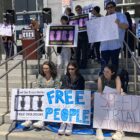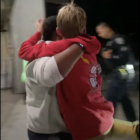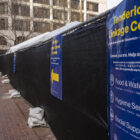San Francisco’s chief medical examiner delivered grim statistics last week about a recent increase in deaths related to drug use. In the first three months of the year, 200 people died of accidental overdose. That’s up significantly from the first quarter last year, with 142 deaths.
These tragedies were disproportionately suffered by marginalized groups. The biggest increase in deaths occurred among those who lacked housing. People listed as having “no fixed address” accounted for 61 overdose deaths in the first quarter, up from 26 during the same period in 2022. Black residents accounted for 33% of fatal overdoses in the first quarter this year, despite representing only 5% of the city’s population.
Addiction experts say the recent increase in overdose deaths could be linked to the closure of the Tenderloin Linkage Center, a temporary facility that operated in United Nations Plaza from January to December 2022 to help drug users and people without housing access supportive services.







